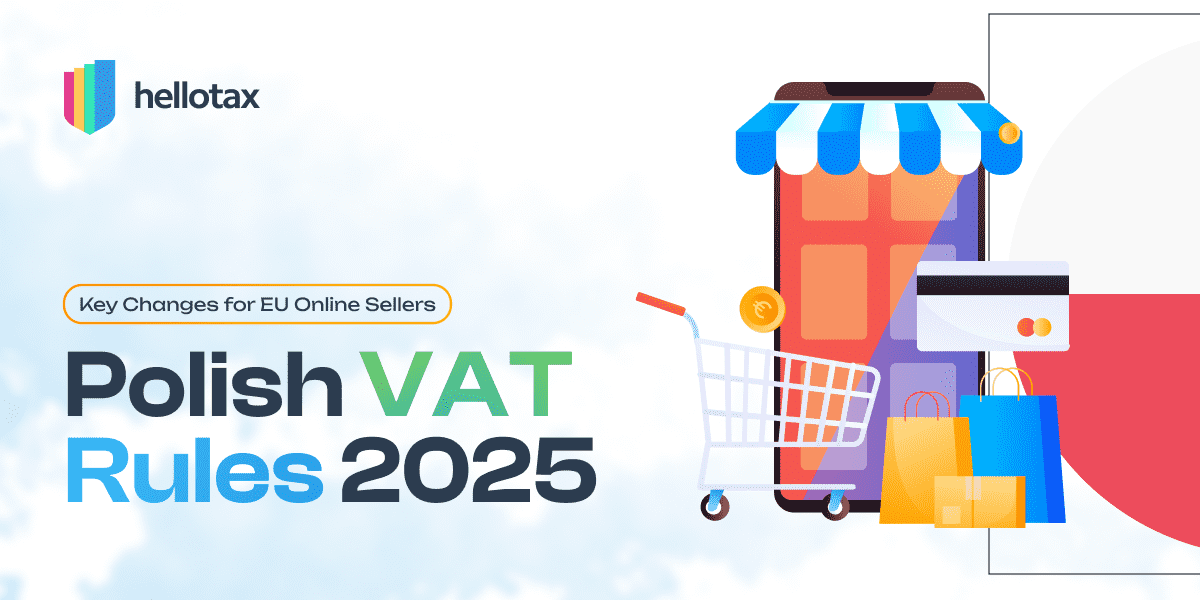
Navigating the world of Amazon can be both exciting and challenging for sellers, especially when it comes to deciding between Fulfillment by Amazon (FBA) and Fulfillment by Merchant (FBM). In this article, we’ll explore the pros and cons of both FBA and FBM to help you make an informed decision based on your unique business needs.
Maria
Last Updated on 26 January 2024Fulfillment by Amazon (FBA)
Fulfillment by Amazon is a service that allows sellers to store their products in Amazon’s fulfillment centers. When a customer places an order, Amazon picks, packs, and ships the product on behalf of the seller. Here are the key factors to consider when evaluating FBA:
Advantages
- Prime Eligibility: FBA products are often eligible for Amazon Prime, which can significantly boost your product visibility and sales.
- Outsourced Logistics: With FBA, you delegate the packing, shipping, and customer service to Amazon, freeing up your time to focus on other aspects of your business.
- Multi-channel Fulfillment: FBA can fulfill orders from other sales channels, expanding your reach beyond Amazon.
Disadvantages
- Fees: FBA comes with storage fees, fulfillment fees, and other associated costs, which can impact your profit margins.
- Less Control: You relinquish control over the fulfillment process, and if there are issues with packaging or shipping, it reflects on your brand.

Book a free consultation
Our VAT experts are happy to help you. Book a free consultation today!
Suitable Types of Business for FBA
Fulfillment by Amazon (FBA) is a robust service that caters to a variety of businesses, but certain types of businesses are particularly well-suited to leverage the benefits of FBA. Here are some types of businesses that can thrive with the FBA model:
- Retail Arbitrage and Resellers
Businesses that specialize in sourcing products from retail stores, clearance sales, or other marketplaces to resell on Amazon.
FBA is ideal for resellers as it streamlines the entire fulfillment process, allowing them to focus on finding profitable products without worrying about logistics.
- Private Label Sellers
Businesses that create their own branded products and sell them on Amazon. These products are typically manufactured by third-party suppliers and labeled with the seller’s brand.
FBA is advantageous for private label sellers because it handles storage, packing, and final mile delivery, providing a hands-off approach to fulfillment in Europe or in any other region. Additionally, FBA can enhance product visibility through Prime eligibility.
- Seasonal Businesses
Businesses that experience fluctuations in demand based on seasons or holidays.
FBA allows seasonal businesses to scale up or down quickly without the hassle of managing warehouse space and staffing during peak times. The flexibility of FBA makes it an excellent fit for businesses with varying order volumes.
- Small to Medium-Sized Businesses (SMBs)
Smaller businesses with limited resources that are looking for a cost-effective and efficient fulfillment solution.
FBA enables SMBs to compete with larger competitors by providing access to Amazon’s extensive fulfillment network. It eliminates the need for significant upfront investments in warehousing and logistics.
- Global Sellers
Businesses that operate on an international scale, selling products across multiple Amazon marketplaces.
FBA’s global fulfillment network allows businesses to store inventory in various locations, ensuring faster shipping times and lower shipping costs for customers worldwide. This is especially beneficial for businesses targeting a global customer base.
- High-Volume Sellers
Businesses with a high volume of orders that may find it challenging to manage in-house fulfillment efficiently.
FBA is designed to handle high order volumes seamlessly. It provides the infrastructure to process and fulfill orders quickly, making it an ideal choice for businesses experiencing rapid growth.
- Businesses Focused on Customer Experience
Businesses that prioritize a positive customer experience, including fast shipping and reliable delivery.
FBA enhances the customer experience by offering fast and reliable shipping, and it provides access to Amazon Prime, a service highly valued by many customers.
In summary, FBA is suitable for a diverse range of businesses, from small startups to established brands, as long as they can benefit from the convenience, scalability, and global reach that the service provides. Businesses that want to streamline their fulfillment processes and leverage Amazon’s extensive logistics infrastructure can find great success with FBA.
Fulfillment by Merchant (FBM)
Fulfillment by Merchant involves sellers handling the entire fulfillment process, from storing inventory to packing and shipping orders. Here’s what you need to consider with FBM:
Advantages
Cost Control: FBM allows for more control over fulfillment costs, as you manage the entire process and can optimize for efficiency.
Brand Control: You have control over packaging and branding, ensuring that the customer experience aligns with your brand image.
Flexible Inventory Management: With FBM, you can easily adjust your inventory levels and respond to changes in demand.
Disadvantages
Time-Consuming: Handling fulfillment in-house can be time-consuming and may require significant manpower, especially as your business scales.
Limited Prime Visibility: FBM products may not be eligible for Amazon Prime, potentially impacting your visibility and sales.
Suitable Types of Business for FBM
Fulfillment by Merchant (FBM) is a fulfillment option on Amazon where sellers handle the entire order fulfillment process, including storage, packing, and shipping. While FBM may not offer the same hands-off convenience as Fulfillment by Amazon (FBA), it is well-suited for certain types of businesses. Here are some examples:
- Artisanal and Handmade Goods
- Businesses that create unique, handmade, or artisanal products, often in smaller quantities.
- FBM is advantageous for businesses with specialized or custom products that may not be well-suited for mass storage in Amazon fulfillment centers. It allows for personalized packaging and direct control over the crafting and shipping process.
- Customizable Products
- Businesses that offer products that can be personalized or customized according to customer preferences.
- FBM allows for greater flexibility in managing inventory and handling customization requests. Sellers can easily adapt to changes in product specifications or packaging based on customer preferences.
- High-Margin Products
- Businesses with high-margin products where the cost of third-party fulfillment services might significantly impact profit margins.
- FBM can be a cost-effective option for businesses that have higher profit margins and can manage the fulfillment process efficiently without incurring excessive costs associated with third-party services.
- Niche or Specialty Products
- Businesses that focus on niche or specialty markets with products that have unique features or cater to specific interests.
- FBM provides sellers with the ability to maintain control over the entire fulfillment process, ensuring that niche or specialty products are handled with the attention to detail they require.
- Low-Volume Sellers
- Businesses with lower sales volumes that may not benefit from the economies of scale provided by FBA.
- For businesses with a smaller inventory and lower sales volume, FBM may be a more cost-effective option. It allows sellers to fulfill orders as they come in, avoiding storage fees associated with FBA.
- Perishable or Fragile Goods
- Businesses that sell items requiring special handling, such as perishable or fragile products.
- FBM is beneficial for sellers who need to control the packaging and shipping process to ensure that delicate or perishable items are handled appropriately to prevent damage during transit.
- Local or Regional Businesses
- Businesses that primarily serve a local or regional customer base and want to manage their own order fulfillment.
- For businesses with a concentrated customer base, FBM allows for localized inventory management and can facilitate faster shipping to nearby areas.
In conclusion, Fulfillment by Merchant is well-suited for businesses with specific needs, such as those offering customizable or niche products, and for those with the capacity to handle their own fulfillment efficiently. It’s a flexible option that empowers sellers to maintain control over their inventory, packaging, and shipping processes.
Amazon Preparation Service Option
In the context of Amazon, “preparation” typically refers to the process of preparing and packaging products before sending them to an Amazon fulfillment center. This step is crucial for both FBA (Fulfillment by Amazon) and FBM (Fulfillment by Merchant) sellers, but the specific requirements may vary.
For FBA Sellers
Labeling
Products need to be labeled with a scannable barcode that corresponds to the product listing on Amazon. This allows Amazon’s system to identify and track the items in their fulfillment centers.
Packaging Requirements
Amazon has specific packaging guidelines to ensure products are protected during transit and storage. This may include using poly bags, bubble wrap, or other protective materials based on the nature of the product. The location is important so if you are operating in the UK then you may search for an Amazon Preparation center in the UK.
Boxing and Case-Packing
Products are usually required to be packed in boxes following Amazon’s guidelines. For efficient processing, sellers often employ case-packing, where multiple units of the same product are packed together in one box.
Product Preparation Instructions
Certain products may require additional preparation, such as removing batteries from electronic devices, sealing liquids, or adding expiration date labels for certain consumable goods.
For FBM Sellers
Custom Packaging
FBM sellers have more flexibility in designing custom packaging based on their brand requirements. This allows for a personalized unboxing experience for customers.
Shipping Labeling
FBM sellers are responsible for generating and attaching shipping labels to their packages. This ensures that the carrier can accurately route the shipment to the customer.
Packaging Standards
While there are no strict Amazon packaging requirements for FBM sellers, it is still important to ensure that products are securely packaged to prevent damage during transit.
For example in Germany Amazon mandates that products must be securely packaged, clearly labeled with a scannable barcode, and accompanied by a shipping label with the customer’s address. To cope with these requirements your business can use Amazon preparation center in Germany.
Whether you are an FBA or FBM seller, following Amazon’s preparation guidelines is essential to ensure a smooth and efficient fulfillment process. Failure to comply with these guidelines may result in additional fees, delays in processing, or even the removal of products from the Amazon marketplace. Therefore, sellers should carefully review and adhere to Amazon’s specific requirements for labeling, packaging, and product preparation based on their chosen fulfillment method.
How to Choose the Right Fulfillment Method for Your Business
Evaluate Your Business Model
Consider the size and scale of your business. FBA may be more suitable for high-volume sellers, while FBM might be a better fit for smaller operations.
Cost Analysis
Conduct a thorough analysis of the costs associated with each fulfillment method. Factor in fees, storage costs, and the impact on your overall profit margins.
Brand Strategy
If maintaining control over your brand image and customer experience is crucial, FBM might be the better choice.
Shipping Speed
If you prioritize fast shipping and Prime eligibility, FBA could be the ideal solution.
Conclusion
Ultimately, the choice between Amazon FBA and FBM depends on your business goals, budget, and the level of control you desire. Whichever method you choose, remember that the key to success lies in adapting your fulfillment strategy to the evolving demands of the e-commerce landscape.

Book a free consultation
Our VAT experts are happy to help you. Book a free consultation today!

